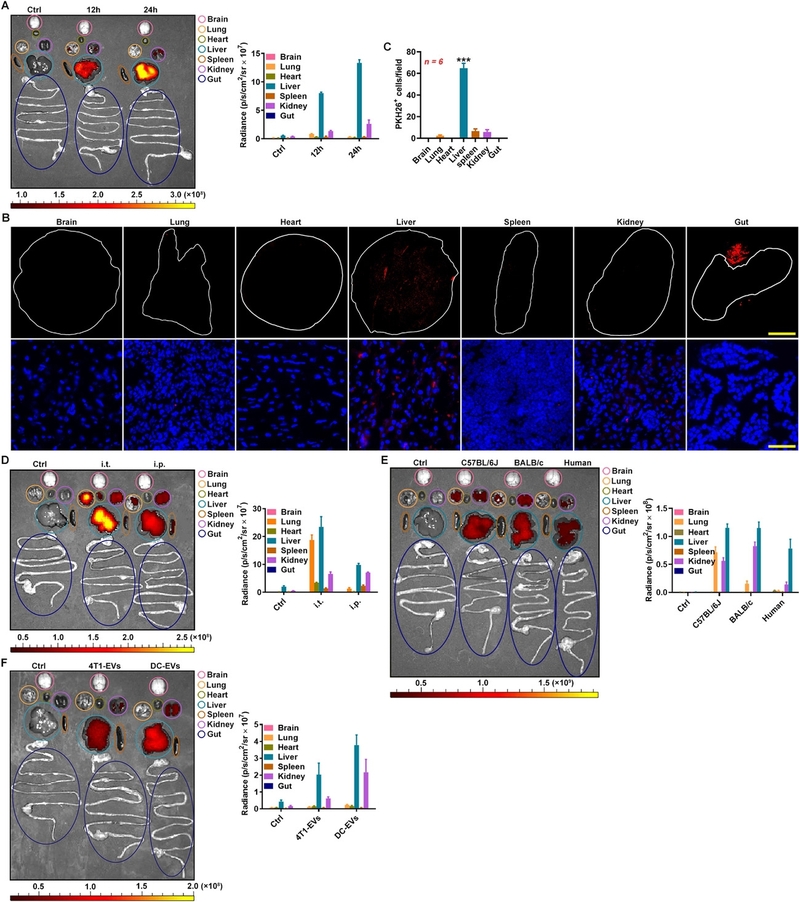Scientists discover a natural liver-accumulating drug delivery vehicle
Extracellular vesicles (EVs) are superb potential vectors for the delivery of therapeutic drugs with their low immunogenicity and cytotoxicity. However, issues with biological safety and disease targeting substantially limit their clinical application. EVs from red blood cells (RBC-EVs) are a potential drug delivery vehicle, given their high production and beneficial characteristics in biosafety.
The research team led by Prof. CAI Zhijian from Zhejiang University School of Basic Medical Sciences carried out relevant research. Their findings demonstrated that EVs, including RBC-EVs, show natural liver accumulation. Mechanistically, the liver environment induces macrophages to phagocytize RBC-EVs in a C1q-dependent manner. RBC-EVs loaded with antisense oligonucleotides of microRNA-155 showed macrophage-dependent protective effects against acute liver failure (ALF) in a mouse model. These RBC-EVs were also effective in treating ALF.

”As compared with routine doses of doxorubicin and sorafenib (SRF), RBC-EVs loaded with doxorubicin or SRF showed enhanced therapeutic effects on a murine model of orthotopic liver cancer through a mechanism dependent on macrophages,” said Prof. CAI Zhijian. “Importantly, drug-loaded RBC-EVs showed no systemic toxicity at therapeutically effective doses, whereas routine doses of doxorubicin and SRF exhibited obvious toxicity.”
This research was published in the Journal of Extracellular Vesicles in an open-access way on December 9, 2020.